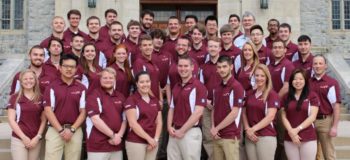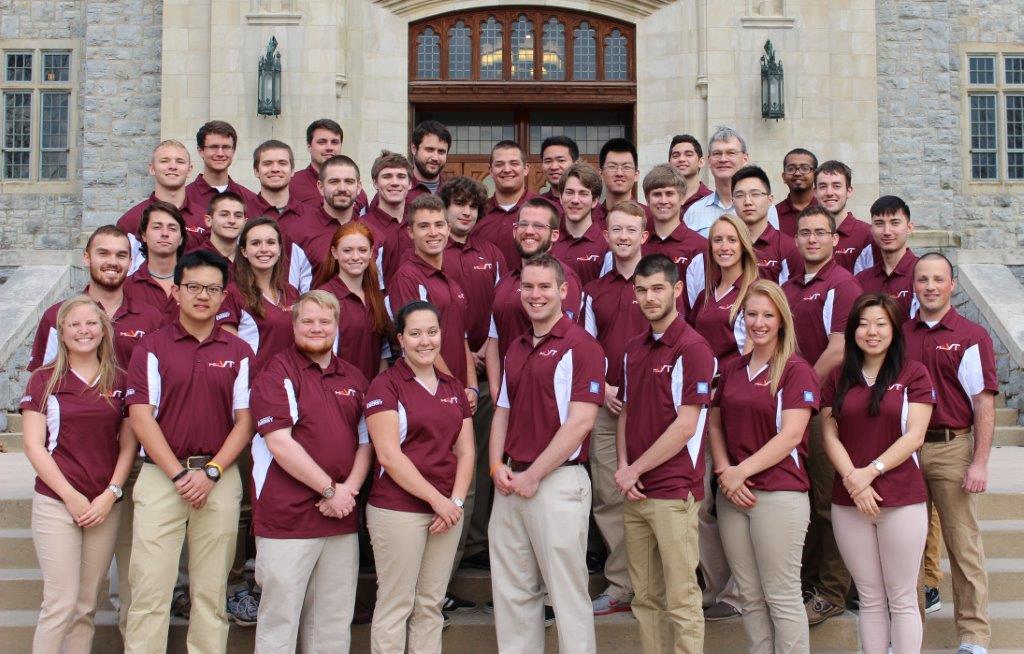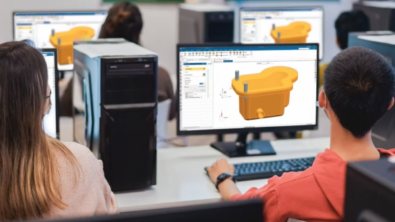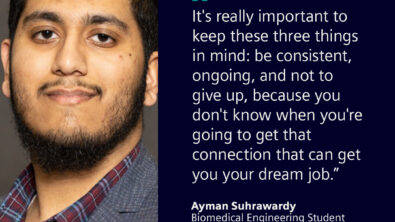Siemens helps university students prepare for the real world

Siemens supports competitions like EcoCAR to develop real-world ready students. EcoCAR 3 is a 4-year competition, sponsored by General Motors and the U.S. Department of Energy, to turn a 2016 Chevrolet Camaro into a fully functional hybrid-electric vehicle. At the end of the year, 16 teams across North America compete in vehicle design, mechanical, innovation, controls, project management, and communications. Students present progress and lessons learned to real-world judges and compete to win awards in each category.

Siemens is a sponsor of EcoCAR 3 and has granted millions of dollars’ worth of software programs. One of the most widely used software programs by the universities in the competition is NX, It helps companies, and in this case students, create and deliver better products, faster and more efficiently. GM uses NX and provided each team with the NX CAD file of the Camaro. In fact, Siemens software is used by 29 of the top 30 automakers. NX is especially helpful for the 16 EcoCAR teams looking to revolutionize the future of the auto industry. Siemens PLM Software provides an Excellence Award to teams who demonstrate and communicate the most effective use of NX design and simulation software.
To be considered for the award, teams submitted a report on how they used the software for the various components of the vehicle. These reports were judged and scored and the Hybrid-Electric Vehicle Team (HEVT) of Virginia Tech placed second because judges were impressed by the team leveraging multiple aspects of Siemens NX to design, analyze and fabricate the parts of their custom motor.
Matthew Moniot is a recent graduate of Virginia Tech with a degree in mechanical engineering. He joined the EcoCAR program as a sophomore on the mechanical sub-team where he was tasked to design the team’s custom 100-kilowatt electric motor. Moniot’s experience on the team led him to the opportunity to intern at Honda in the Hybrid Electric Drive Department and works at the National renewable Energy Laboratory this summer before returning to Virginia Tech in the fall to pursue a master’s degree.

Virginia Tech’s team placed second in Year One of the EcoCAR 3 program and again in Year Two. Moniot said, “it is difficult to not be proud of our team’s accomplishments. The architecture pursued [by our team] is the only one featuring a V8, and seeing the motor come to life…was very satisfying.”
However, before the team got to enjoy the moment when its V8 Hybrid Super Sport’s engine started they spent countless hours planning, designing, redesigning, and constructing the vehicle. Moniot explained that NX was “a critical tool within the motor design process. NX enabled revisions…to be quickly updated within HEVT’s CAD model to confirm there were no conflicts with other components [in the vehicle]. The power of NX’s assembly constraints and visual tools enabled successful integration of our custom motor.”
Software like NX makes the work these student engineers possible in the two-year time span.
Even with the team’s considerable success in Years One and Two, moving forward Moniot knows the pressure to perform is on. “Integration of our motor proved successful for the events within the Year Two competition, but significant refinement will be required to be competitive during the more aggressive dynamic events next year. We will further deploy NX to rethink our alignment process and potentially our mounting strategy.” NX gives the students on Virginia Tech’s team the chance to get the most out of their efforts. The students in the EcoCAR 3 program commit nearly full-time job to the competition, while working towards a degree and participate in other university programs. Siemens’ software helps these students save time and energy throughout the design and fabrication process, giving them more time to focus on learning and revolutionizing the automotive industry.
EcoCAR and NX software give students real-world outside the classroom. Hands-on, interactive experience with software used across nearly every industry is invaluable to a student’s academic growth.
Moniot solidifies that sentiment, “The program has provided me experience with solid modeling, assembly management, and even drawings…I look forward to applying these skills that NX has helped me hone during my time on HEVT within the industry after completing my master’s degree.”
As the industry digitizes more data and processes it is now more important than ever that students are getting the proper education to equip them once they graduate.
Year Two of the program has officially wrapped up and school will soon be back in session, but HEVT looks back and is proud of its accomplishments. The team takes the lessons learned with them as they move forward, seeking a first place finish for Year Three of the program.
The top six teams for Year Two were as follows;
- Ohio State University
- Virginia Tech
- Embry-Riddle Aeronautical University
- University of Alabama
- Mississippi State University
- Penn State University.
Learn more about the EcoCAR 3 program and all 16 of the teams. Siemens is a proud sponsor of the EcoCAR 3 program and is working hard to bring the necessary software tools to students across the globe to assist the learning process for the workforce of the future. Siemens looks forward to seeing how these teams and students work to revolutionize the auto industry and the world in the future.


